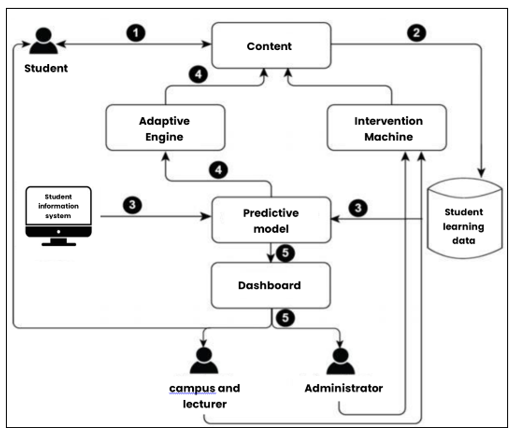E-Learning course design and implementation in fuzzy logic
Keywords:
design, digital learning, e-learning course, fuzzy logic, implementationAbstract
The goal of e-learning in fuzzy logic courses is to assist students in the learning process, create menu structures and simple operation techniques, and create prototypes for e-learning in fuzzy logic courses. The difficulty of students in implementing what they have learned stems from the fact that the advent of e-learning can make it simpler for students to access material that they do not comprehend. In this study, an analytic learning prototype was used as the research approach. The outcomes of e-learning products based on online apps in this fuzzy logic course can be used as learning material. The menu structure developed in this e-learning is a home page with an introduction to e-learning, a site page with participants, calendars, and notes. Pages that can be used to grow the network and courses are the most significant aspects of e-learning. E-learning includes material, discussion, forums, quizzes, and other activities. The findings of the validation by media specialists on this e-learning application are pretty good, indicating that it is suitable for use. According to the results of material expert validation, the material used is excellent, suggesting that it is ideal for use in fuzzy logic courses. The limited test results for Informatics study program students were in the very good category, indicating that this e-learning tool was simple to use.
Downloads



